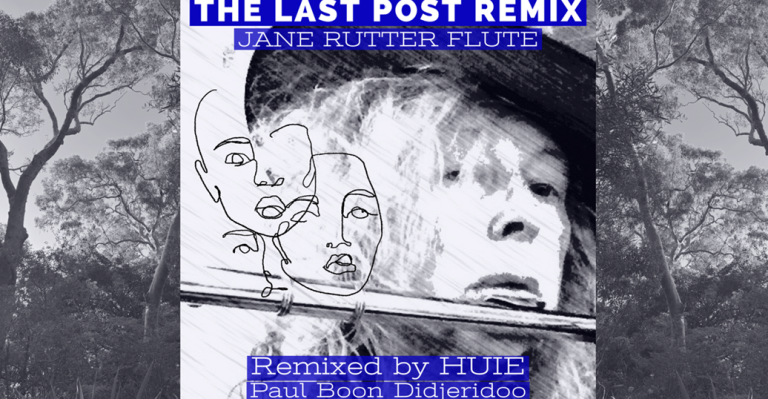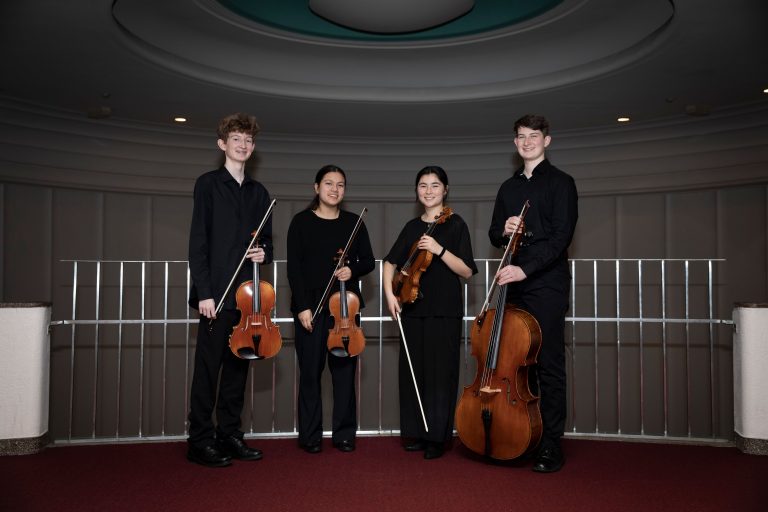Musica Viva 2023 With Paul Kildea
Musica Viva Australia has unveiled its 2023 program and it’s a crackerjack collection of music that is new and old, traditional and innovative, elaborated with theatre, multi-sensory experiences and elements of nature. It represents what Musica Viva’s Artistic Director Paul Kildea, wants for chamber music lovers in 2023. His aim has been to curate productions that offer a novel take on chamber music and to present music that gives a sense of comfort.
Speaking to SoundsLikeSydney from Melbourne, Kildea says “I wanted people to hear and see chamber music in a different way. I want people who love a Dvořák string quartet to be able to hear that Dvořák string quartet but I also want them to be able to experience something like John Cage or to see an artist like Aura Go take on not just the Chopin Preludes and some really important works that influenced Chopin when he was writing the preludes, but for her to also go into a new area of acting alongside another really wonderful professional actor.”
He continues, “I wanted a sense of comfort as well which is why I asked Garrick Ohlsson if he’d come back because it’s a bookend of a really awful couple of years.” Kildea is referring to American pianist Garrick Ohlsson’s last tour to Australia in early 2020, one of the last music tours before the COVID lockdowns.(Read our review of that concert) “It was such a successful tour I really wanted him to come back and do more than perform and because he had just the best time in Australia, he was amenable to taking on things he doesn’t normally undertake, like a new commission, performing two really big programs and doing some really deep mentoring with a young Melbourne pianist. So, on the one hand, 2023 is about comfort and familiarity and on the other hand it’s about the confidence that audiences will experience chamber music anew.”
Like asking a parent if they had a favourite child, I ask Kildea if he could nominate any favourite programs or highlights of the year. “Thrilled” about the whole year, Kildea compares my question to asking a composer what their favourite piece is and their response of nominating whatever they are working on at the moment. He points to the traditional concerts like 21-year-old Dutch violinist Noa Wildschut with 27-year-old German pianist Elisabeth Brauβ touring in November with two programs which include violin sonatas by Schumann, Debussy, Enescu, Franck and a new piece by May Lyon. Says Kildea “I heard Noa Wildschut play the César Franck sonata online and she sounded like a young Janine Jansen.” Then there is the Berlin based Vision String Quartet touring in September and October playing music by Bloch, Bartók and Dvořák. “They are a really hip, young string quartet that does everything from memory which is a strange and wonderful thing in string quartet playing” he adds.
Venturing into new territory, Kildea claims great pride in the Cage Project which will receive its world premiere at the Adelaide and Perth Festivals in March. Conceived by Kildea and Australian percussionist, composer and sound artist Matthias Schack-Arnott, French Pianist Cédric Tiberghien is Kildea’s hand-pick to play John Cage’s nearly 75-year-old magnum opus, his Sonatas and Interludes of 1948 for prepared piano, augmented by a “massive kinetic sound sculpture that floats above the piano and rings and chimes in synchronicity.” Hearing Schack-Arnott perform in 2019, Kildea was struck by how similar his aesthetic was to Cage’s Sonatas and Interludes. He gave Schack-Arnott the brief of imagining the inside of a prepared piano, taking it outside, making it theatrical and re-imagining it as a three-dimensional sculpture.
Should there be further waves and mutations of the Coronavirus with the potential for disrupting public gatherings, Musica Viva is prepared. Says Kildea, “The online model is tried and tested although it is not a substitute for the live performance. The other good thing that has emerged from the last two years is the replacement concert model.”
The recent tour by mandolin player Avi Avital is a case in point. Due to tour Australia with cellist Giovanni Sollima, plans had to be hastily redrawn when, three days before leaving for Australia, Sollima was infected with COVID-19. “Two years ago, I would have gone ‘Oh my God what do we do?’ Now, it is second nature to pick up the phone to an alternative artist and ask them if they are free on the relevant dates. Then I ring Avi and say, ‘There are some different associate artists who I recommend who I’d really love you to work with.’ Now, everyone from the artists, the organisation and the audiences know that this is not what was planned, but they will go with it. Avi’s generosity in working with four different associate artists on this tour of Australia was astounding. He was so open and gracious and loved the Australian musicians he found himself playing with.”
Audiences too have adapted. “And that’s an important development” adds Kildea. “Of course, we still offer them refunds but the take-up is tiny and people accept that it is the new reality. In Perth, Avi performed with Gladys Chua, a wonderful young ANAM graduate who lives there. They did one performance with two hours of rehearsal and the reception for her was astonishing because it was the home crowd cheering on the local musician.”
Gladys Chua’s call to perform with Avi Avital is an apt example of COVID restricted travel giving Australian performers opportunities that they might otherwise not have had. Will the return of overseas artists now disadvantage Australian musicians? “I want Australian musicians to have great opportunities which is why I have put Matthias Schack-Arnott in the Cage Project” Kildea explains. Equally, Kildea’s years of living and working in Europe and the UK have given him unique access to some of the world’s greatest musicians. “Musica Viva’s role in Australia is not simply to platform Australian musicians but to bring the best of the world’s musicians to this country so that everyone benefits from that. I myself benefited hugely from that, growing up as a young musician and attending Musica Viva concerts. It’s the responsibility of the organisation and it’s in our DNA that we bring the best. But I really want the best to include great collaborations with Australian artists and this means that I need to be nimble and imaginative in my thinking and planning.”
Also in the 2023 line- up is Chopin’s Piano, a fascinating production which straddles music, drama and literature, based on Kildea’s eponymous book and performed by pianist Aura Go and actor Jennifer Vuletic. With staging by Richard Pyros, the story traces the intriguing history of a Majorcan-made 1830s piano, on which Chopin composed his 24 Preludes opus 28. Although the original tour of Chopin’s Piano was cancelled, the production was filmed and streamed in 2021. Now, the live performances are set to eventuate. Says Kildea “I started the conversation about wanting people to hear and experience chamber music differently and this is a great way of achieving that. I think it will appeal to a different audience who will love the Chopin Preludes.”
Conspicuously absent from the program is any representation of vocal or choral music which has been particularly hard hit by the pandemic with singing considered a high-risk activity. Kildea reassures me that there are big projects planned for 2024 and beyond, explaining “I’d love to have more song and choral music, but the big choirs have really taken a beating during COVID and have to regroup so I didn’t rush into that for 2023.”
Musica Viva’s hive of educational programs will continue in 2023. Masterclasses will be a part of a range of development activities for emerging artists and Kildea is keen to introduce the idea of ‘deep mentoring.’ “Masterclasses are amazing and can be life-changing but sometimes there is greater impact, for instance, Garrick will work with this young pianist and they’re going to perform in various salons while Garrick is in town. Garrick said he would need three hours’ rehearsal with this pianist and that is an amazing gift.” The education program will also focus on giving young musicians curatorial experience.
The schools-based programs remain popular. Kildea is impressed by the continuing success of Strike a Chord, Musica Viva’s National Chamber Music Championship for secondary school ensembles which has grabbed the attention of not only the young entrants, but of funding bodies and government. Applications for the 2023 Melbourne International Chamber Music Competition have just closed, having attracted a “record crop.” The two-year Future Makers program will also go on with former winners Partridge Quartet finishing their program and new Future Makers to be appointed.
Overwhelmingly, whether it is shaping a concert program, a tour or educational activities, there are fall-back options in place and Kildea senses a gratifying gathering of confidence as planning can proceed with a degree of certainty. He leaves me with his thought on re-defining chamber music. “Musica Viva is a chamber music organisation, but some people can find this a really alienating idea. So, I just want audiences to know that each individual tour and concert is really carefully curated around the idea of an experience. It’s not about having to know about string quartets; it’s about coming face to face with the best possible musicians to have an experience and an encounter with this repertory which I just love.”
Shamistha de Soysa for SoundsLikeSydney©






